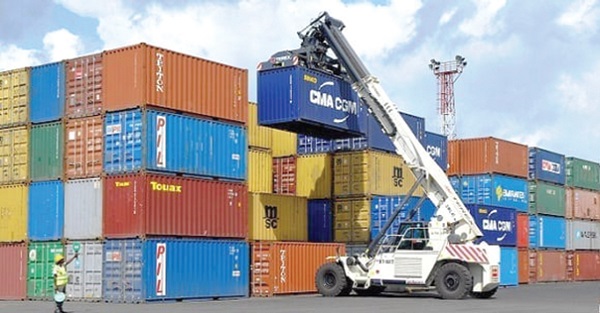Ghana’s trade dynamics displayed notable resilience in April, with the trade balance registering a robust uptick, reaching $744 million, equivalent to 0.9% of GDP, compared to $673 million in March, representing 0.8% of GDP.
This positive momentum was largely underpinned by a substantial surge in the country’s export figures, climbing from $4.3 billion in March to $5.8 billion in April 2024, according to the Bank of Ghana’s latest Summary of Economic and Financial Data for May 2024.
The country’s total imports at end-April stood at $5.08bn from $3.6bn in March 2024.
Driving this surge were significant increases in exports of key commodities, notably gold, cocoa, and oil. Gold exports saw a remarkable escalation to $2.9 billion in April, a significant leap from $2.1 billion in March.
Similarly, cocoa exports climbed to $599 million from $495 million, while oil exports surged to $1.2 billion from $1.02 billion over the same period. These increments underscore the pivotal role of these commodities in bolstering Ghana’s export performance and, consequently, its trade balance.
The resultant expansion in the trade surplus also translated into a notable augmentation in gross reserves, which stood at $6.5 billion by the end of April, compared to $5.9 billion in March. This robust reserve position, equivalent to three months of import cover, signifies a bolstered economic resilience and capacity to withstand external shocks.
Moreover, the increase in gross reserves reflects positively on Ghana’s ability to maintain stability in its external sector and provides a cushion against potential volatilities in global markets.
Furthermore, Ghana’s net reserves witnessed a commendable increase, reaching $3.9 billion by end-April 2024, compared to $3.8 billion the previous month. This enhancement underscores a strengthened financial position and augurs well for the country’s overall economic stability.
The upward trajectory in trade balances and reserves underscores Ghana’s commendable economic performance amidst global uncertainties. However, challenges such as commodity price volatility and external demand fluctuations necessitate continued vigilance and prudent policy measures to sustain the country’s positive trajectory.
Ghana’s ability to navigate these challenges will be pivotal in ensuring sustained economic growth and resilience in the face of evolving global dynamics.
Norvanreports





